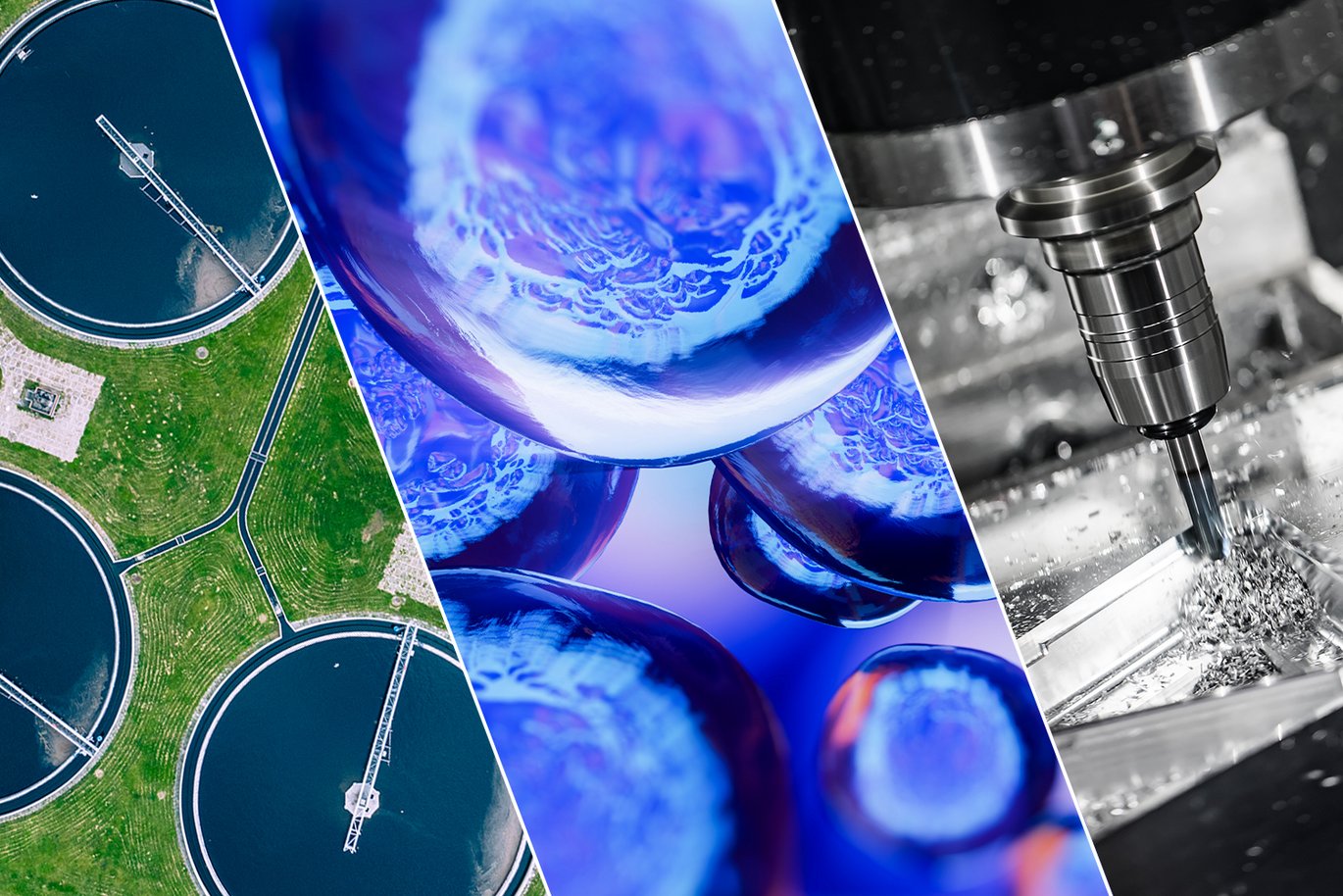Environmental monitoring, stem cell technology and industrial tools: New engineering projects centred on data
AU Engineering is launching three new, cross-disciplinary and data-driven research projects funded by the Villum Foundation. Among other things, the new projects will help to limit the effects of environmental disasters and improve our understanding of how cells react to mechanobiological influences.

A total of 15 cross-disciplinary projects, each anchored in two researchers and with its own subject area, have received funding totalling DKK 57 million from the Villum Synergy programme: Villum Synergy is Denmark's largest programme for data-driven cross-disciplinary research.
Three of the projects are based at the Department of Engineering at Aarhus University, where researchers from the Department of Electrical and Computer Engineering, the Department of Mechanical and Production Engineering and the Department of Biological and Chemical Engineering, in collaboration with researchers from other fields, have received a total of DKK 9 million for research into stem cell technology, digital environmental monitoring and industrial milling tools.
Stem cell technology
Associate Professor Jens Vinge Nygaard from the Department of Biological and Chemical Engineering and Associate Professor Ute Hahn from the Department of Mathematics at AU have received DKK 3 million for their project 'Quantifying Cellular Reaction to Geometric Properties of Extracellular Environment'.
"New research shows that cells react to mechanical signals from the extracellular environment. In this project, we want to develop a mathematical model that makes it possible for us to identify important morphological traits in the extracellular environment, so that we can better understand why and how cells react to mechanobiological influences," says Associate Professor Jens Vinge Nygaard.
The project will serve as a foundation for future studies of cell-matrix interaction, and it has no precedent in the literature.
Environmental technology
Professor Daniel Lucani Rötter from the Department of Electrical and Computer Engineering and Associate Professor Klaus Koren from the Department of Biology have received DKK 3 million for their project 'WaterKnowledge - Knowledge-driven Digitalisation of Water Environments'.
The plan is to digitalise environmental measurements of chemicals and nutrients in real time. Real-time data on chemicals in the environment will provide a snapshot of the current environmental situation and make it possible to measure and analyse constantly, enabling immediate reaction when necessary.
"One of the major challenges we will address is to design a holistic system. Up to now, sensors, communication technologies, and analysis and learning algorithms have been developed individually. Our goal is to change this approach to system-driven knowledge about aquatic environments and adapt the overall sensor system to achieve this goal. In short, we aim to solve current problems and needs for knowledge using detailed and ground-breaking digitalisation that will thoroughly expand our IoT research infrastructure," says Professor Daniel Lucani Rötter.
The product consists of two parts: Firstly, the researchers will develop a new type of sensor, which must be inexpensive in operation and reliable over time. Secondly, they will develop a suite of algorithms and protocols meant to compress, transfer, analyse, and manage data holistically i.e., with knowledge creation as the common goal.
Milling tools
Associate Professor Ramin Aghababaei from the Department of Mechanical and Production Engineering and Associate Professor Panagiotis Karras from the Department of Computer Science, have received DKK 3 million for their project, CutMore (Enabling efficient use and recycling of cutting tools using multifidelity optimisation).
The project addresses the problem of wear and tear of industrial milling tools. The short lifetime of these costs industry billions in material and energy wastage.
"This is very much because we don’t have a versatile and robust method to find the optimal operating conditions for each tool. In this project, we aim to develop an algorithm for milling tools that can suggest the best operating conditions using a multifidelity optimisation approach on a large set of simulations and experimental data. This is the first step towards a far greener manufacturing industry," says Associate Professor Ramin Aghababaei.
The aim of the project is to reduce energy and material wastage and increase the recycling potential of cutting tools in the manufacturing sector.
The Villum Foundation received a total of 36 applications for the Villum Synergy programme: Three applications for large projects in established collaborations and 33 applications for initiation projects to start new collaborations. The total grant of DKK 57 million has been divided between one large research project and 14 pilot projects.
Contact
Professor Daniel Lucani Rötter
Department of Electrical and Computer Engineering
Email: daniel.lucani@ece.au.dk
Tel.: +4593508763
Associate Professor Jens Vinge Nygaard
Department of Biological and Chemical Engineering
Email: jvn@bce.au.dk
Tel.: +4541893170
Associate Professor Ramin Aghababaei,
Department of Mechanical and Production Engineering
Email: ra@mpe.au.dk
Tel.: +4593508956
